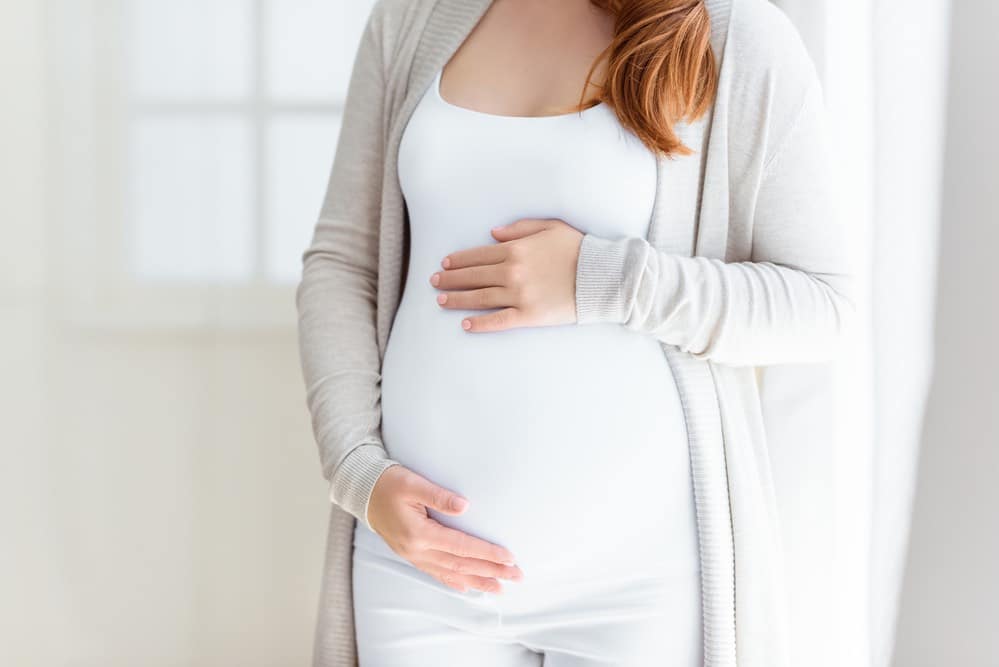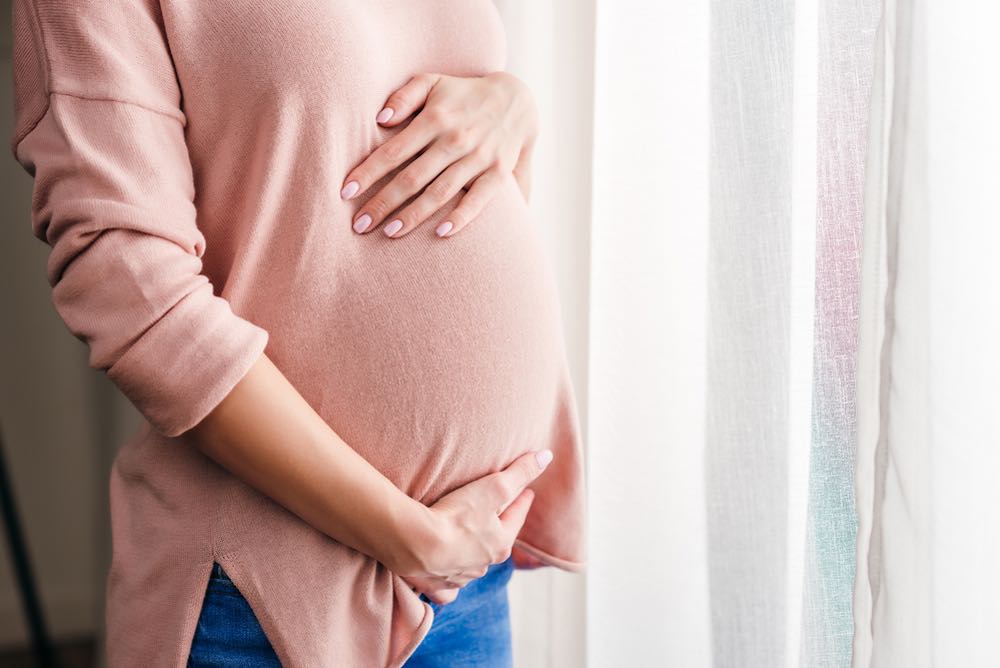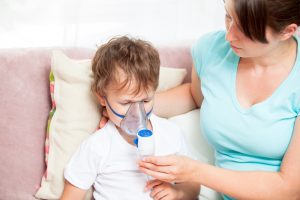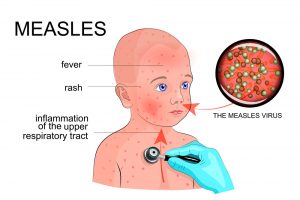If you’re expecting you might be wondering ‘what vaccinations do I need when pregnant?’
The answer is – just two! Pregnancy is a time when you need to take extra care of yourself to ensure you and your baby remain healthy. This includes checking that your vaccinations are up to date to ensure you have the best protection against common infectious diseases.
The following information on vaccinations when pregnant reflects the official recommendations of the Australian Government Health Department, Health Direct ‘Pregnancy, Birth & Baby‘ and Immunisation Coalition.
During pregnancy, your immune system is naturally weaker than usual. This means you are more susceptible to certain infections and illnesses which can be harmful to you and your developing baby. Following some simple precautions will help minimise the risk to you and your baby of developing these health issues. This is why some vaccinations when pregnant are recommended.
Immunisation during pregnancy has the benefit of protecting mum, unborn baby and it continues to offer protection once your baby is born.
It is recommended that all pregnant women receive influenza and whooping cough immunisation during each pregnancy. Whooping cough and influenza vaccines are free for pregnant mums across the country as well as for kids 6 months and older in most states. These are the only two recommended vaccinations when pregnant. (If you’re still trying to conceive read to the bottom as there are other vaccinations recommended before you are actually pregnant.)
Influenza (the flu vaccine) when pregnant
Influenza is a viral disease that is highly contagious. It is spread by coughing and sneezing. Yearly immunisation is recommended in high-risk groups to protect against influenza. It also reduces the symptoms in those who get the flu.
The flu vaccine has been shown to be safe at all stages of pregnancy. During pregnancy, the influenza immunisation will protect mum and baby who are both at high risk of serious effects from the influenza virus.
What are the risks of influenza?
- Potentially serious complications of influenza include premature birth, miscarriage, stillbirth pneumonia, organ failure and potentially death.
- Among those at the highest risk of influenza, complications are children aged under 5 years old and pregnant women.
- The influenza virus is mutating. Therefore the vaccine composition will be determined for every new season. The protection from the vaccine wanes over time, you need an annual update for your immune system to produce antibodies
Some influenza vaccine myths
- MYTH: You can get influenza from the influenza vaccine
- FACT: You CANNOT get influenza from the influenza vaccine. See the video below, which explains that there is NO LIVE influenza virus in the vaccine.
- MYTH: Influenza vaccine is not safe in pregnancy
- FACT: Safety of influenza vaccine in pregnancy – the influenza vaccine is safe in ALL stages of pregnancy.
- MYTH: Influenza is a mild condition
- FACT: Pregnant women and young children have an increased risk of influenza-related complications… Influenza is a potentially deadly disease for mum and baby. Influenza Vaccination gives you threefold protection:
- you during pregnancy and in the early months of motherhood
- the young infant by transplacental antibodies
- and the young infant by antibodies in breast milk.
This video from the Australian Department of Health has more information and is a great watch for those wondering why pregnant women should have the influenza vaccination.

Whooping cough vaccination when pregnant
Whooping cough is a highly contagious bacterial infection. The bacteria attach to the airways and release toxins which can result in airway swelling and damage. The cough with whooping cough generally has a whoop sounds when the person breathes in.
What are the risks of whooping cough?
Whooping cough is generally mild in adults, however, in children, it can lead to pneumonia, seizures, encephalopathy and the death of the baby
All about the whooping cough immunisation
- Whooping cough immunisation is FREE in pregnancy and should ideally be given at week 28.
- Can cause a fever (20% of patients) and reactions at the injection site (10% of patients)
- Pregnant women have no increased risk of stillbirth, pre-eclampsia, foetal distress, low birth weight or neonatal renal failure with the whooping cough immunisation.
- Effectiveness reduces with time. It is important to be vaccinated with each pregnancy.
It is important to note: If you have the flu or whooping cough STAY AWAY from children and pregnant women.
Whooping cough is a serious disease for babies, and can be deadly. Vaccinating pregnant women is the best way to protect young babies against whooping cough. When you are vaccinated, your antibodies transfer from you to your developing baby. They receive protection from you when they are too young to be vaccinated themselves.
Further information on why pregnant women should receive the whooping cough vaccine is available in the Protect your baby from whooping cough brochure.
Watch videos of the Hughes family and the McCaffery family telling their personal stories about losing their babies to whooping cough.
Benefits of whooping cough and influenza vaccinations when pregnant
- Protects during pregnancy and in the early months of motherhood
- Also protects the baby by transferring antibodies across the placenta
- Further protects the young infant by transferring antibodies through the breast milk
- One immunisation covers both mother and baby
I’m pregnant, what should I do?
- Discuss influenza and whooping cough vaccinations with your GP, midwife or obstetrician.
- Make an informed decision having read current, scientifically based information.
- If you choose to have both vaccines they are nationally approved, safe for mum and baby and free of charge under the National Immunisation Program
Who else should be immunised?
- All family (including siblings), friends and carers of young children
- High risk group for influenza
- Whooping cough immunisation recommendations
I’m not pregnant yet! What do I need to consider while planning a pregnancy?
If you are planning a pregnancy, talk to your doctor, nurse or midwife about your past vaccinations and which vaccinations you might need. There are some vaccinations you can have now but can not have once you conceive so this is the ideal time to investigate this.
These vaccinations are recommended for women who are planning a pregnancy:
Rubella (German measles)
Rubella infection during pregnancy can cause serious health problems for your baby. If you are not already vaccinated against rubella, you should be vaccinated before you get pregnant.
Visit the Rubella immunisation service page for information on receiving the rubella vaccine.
Chickenpox (varicella)
Chickenpox can be more severe in adults. If you are infected during the early stages of pregnancy it can also cause birth defects. If you are infected near to when your baby is born, it can cause severe infection in your baby.
You should be vaccinated against chickenpox before you get pregnant if you:
- haven’t had chickenpox disease before
- and, have not had a chickenpox vaccine before.
Visit the Chickenpox immunisation service page for information on receiving the chickenpox vaccine.
Disclaimer: Always consult your own medical professional for advice on vaccinations.
















